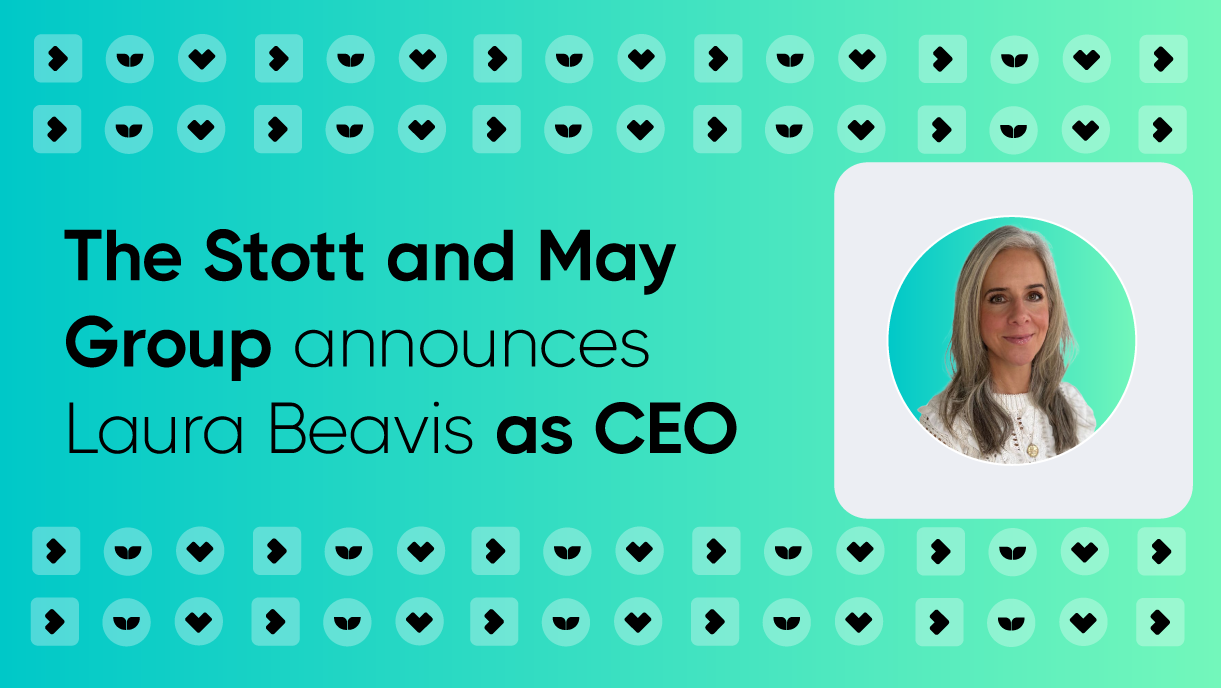At Stott and May we are facinated with every aspect of the growth of disruptive technology vendors. We often find ourselves partnering with tech brands in search of that all important business leader capable of being their 'first man on the ground' in a new territory. This individual carries the burden of the success or failure of international expansion on their shoulders. But what does it really take to be that flag bearer? And what advice is out there for leaders who are about to take that career defining step for the first time? To find out we spoke to Joel Curry, US General Manager of the rapidly growing FinTech firm Validis.
Tell us about your background?
As a UK citizen with a green card I have juggled life between both sides of the pond over the last 20 years. To date, I have set three businesses up as the 'first man on the ground'. I started out with bringing a US organisation into the UK market and then in 2000 set up the US arm of QAS, who at the time were a leading provider of contact data management software and services. In 2004 they were subsequently acquired by Experian. I then took a lengthy gap from establishing new territories, running a range of companies for Experian in both US and UK. By 2014, I felt I had held all of the roles I could add value to within the group. Fortunately, I was then offered the opportunity to establish the US operation of Validis so I took the chance to jump back towards my core skill set - taking new software products into new markets.
What would your top 3 concerns be when taking this kind of role?
Before embarking on building a new P+L in a new region my concerns would tend to fall under the following areas:
1. Product and market understanding
Does the parent management team understand the product and market we were landing in? Do I understand it for that matter? Could I be targeted in my approach? Could I see 'who to say no to' given the finite resources available to me in year 1 and 2? Often this isn't clear and you as the 'new outsider' need to spend the initial period working with the leadership team to really define it.
2. Always make sure expectations are aligned
It's important to establish whether expectations are actually achievable in your own mind. Ask yourself some difficult questions. Do you actually need to reset what could be achieved in the absence of clients and references within that given region? Also, what level of product development is required to meet the core use-cases of the new local market?
3. Make sure you have the right resources in place
Ensure that resources are adequate (enough) and reasonable. Think about how many individuals you can successfully hire and manage in line with growth ambitions. If the two are out of kilter then it begs the questions as to why aren’t we transplanting more management resource from the parent to help build the business from day one?
How do you go about measuring success and failure?
The most important thing over and above any metric or measurement is that you trust and are trusted by your immediate boss. You will be separated by thousands of miles not to mention time zones. For organisations embarking on this journey for the first time the trust piece is deeper than just hiring a capable employee. The relationship will be stretched to breaking point. The reality is things will go wrong. Things will be different than you expected. And there will be times that immediate decisions need to be made on the ground.
Therefore, my advise to any 'first man on the ground' is to go over-board in writing and re-writing an ongoing plan. I will normally prepare a plan projecting actions and performance for the next year and then work on 90 day increments. The more granular you can be in breaking down this plan the more open the discussion will be. Success measures will vary and evolve depending on the maturity of your presence in the new territory. The business I was running in early 2014 made over GBP2M profit each month and employed almost 400 people, so metrics honed in on EBIT, staff/client engagement and retention. However, the plan I wrote for kick starting Validis in Q1 2015 focused in on activity based measures such as daily call volumes we needed to hit, the demonstrations we expected to generate on a weekly basis along with qualitative outcomes around adapting our proposition for the US market. This was set up to allow us to enter into Q2 with decent level of market knowledge, where we would be far better placed to start thinking about bringing talented people into the operation. As the team filled out we could then concurrently evolve the solution so that by the time my new sales team came up to speed within the organisation the product was at least half way from it's UK feature set to fit a local customer.
Most roles will come with a target for revenue and or customer acquisition. As the 'first man on the ground' you need to provide the real building blocks that will lead to this delivery. Budget goals will only be hit from your detailed control of sales and marketing activity/messaging and the ability to build a culture that drives aggressive performance.
What would you say are the unforeseen challenges of being the 'first man on the ground'?
People, people and people are always the biggest challenges. There are 3 stand out aspects to this:
Firstly, each new geography the company expands into will have a different local culture that will impact on whether or not you are the right profile to fit within the business. For example, I would add little to no value in Spain.
Secondly, in the early stages you are likely to be in a tiny regional office where any churn has a huge impact. The local leader must totally immerse themselves in ensuring the correct environment is in place to both drive performance and engage people. In my experience "work harder and be happy" is a difficult drum to beat all the time.
Finally, organisations with an established business in their 'home market' often over estimate the referenceability of their customers. US banks want to hear about US banks not British or French ones and vice versa.
What would you do differently if you had to do it all over again?
This is the third time I have built a business in a new territory and I would say the biggest positive in my approach this time round has been demanding a 3-6 month period where we don't hire anyone. I simply go and sell. So by the time I am hiring people I already know: the market, the pitch and what has to be localised in the product. Trying to decipher this sort of information through the lens of new hires (unless they have worked for you before) is harder yards than you need to travel. Cold calling is not fun, but focusing in on building your knowledge before you get hiring will deliver better results with more control.
What would you say are the most important parts of your hiring process?
Everyone is different when it comes to approaches to talent acquisition but I would hope they at least have a process. You will make mistakes and without a formal process of your own, how do you interpret those mistakes and how do you improve?
I always look to clearly define the profile (experience, behaviours, skills, salary) of the role. Then phone screen in volume to qualify the candidate in or out of a to face to face interview with clear measurement of the conformance to the profile. You have to remove gut feel and qualify the candidate.
I want to know who is going to be my 'backup'. I never make a hiring decision in isolation and always get someone else’s opinion to help with objectivity. That being said make sure you have a clear distinction between roles that need head office sign off and roles that can be signed off locally, as trying to organise a video conference or worse a face to face meeting with the group CEO can kill a hiring process. If you want to attract the best people it's important to remember that the interview process and it's relative 'slickness' is likely to be the candidates first real impression of how your business operates internally.
How difficult is it to bring in high quality sales talent?
It is very difficult to hire sales talent as even mediocre sales people are quite good a selling themselves. Ideally you want to establish as early as possible a sales school where you grow your own. There are a number of blue chip businesses that have built their US sales forces by hiring the QAS talent out of the top end of my funnel.
Where you have to ramp sales more quickly than this then you will need to use all means necessary which covers everything from direct sourcing to retained search when seeking out the top talent. Recruiting typically has taken up around 40%+ of my time in most of the roles I have had.
Given all interviewees have put effort into looking impressive, it's important to put rigorous performance checking in place to weed those that are not good enough to deliver what you want. In the early days behaviours (effort, judgement, understanding of the product and business, engagement with the rest of staff) will provide indicators of potential rather than just short term pipeline. At that point it's usually pretty clear which hires will lead billings and which won't. While you may not always get it right at the offer stage it is normally glaringly obvious after 90 days in role.
What would your top 3 tips be for someone just starting out on this challenge?
1. Demand the time to understand the market, proposition and target prospect
More time on the prospects and less on suspects and half fits will pay more dividends than hitting the ground 3 months earlier thinking you understand who the customer is.
2. Ensure a deep level of trust between you and your boss
Things will go wrong. Your manager needs to have your back and understand/support your decision making process. They must not be looking to apportion blame as you won’t be in most of the meetings in head office where your operation is discussed.
3. Make talent acquisition your highest priority
Put more effort and focus on recruiting right. You as the local leader own the engagement, performance and understanding of what staff must do every day to deliver to for the organisation.
Find out which great technology brands are turning to Stott and May to help them put top sales talent into new territories by checking out our placements map.






